A few years ago, I bought a used truck that looked solid on paper. The engine purred, the price was right, and I needed something fast.
But a month in, the issues started. Leaks. Electrical problems. Two breakdowns that left us stranded with a full load and angry clients.
That truck cost me more than money. It hurt my business.
I’ve also bought new trucks—some were worth it. Others weren’t.
If you’re stuck choosing between used and new, you’re not alone. It’s a real question. And the wrong answer can drain your budget, eat up your time, or stall your entire operation.
In this guide, I’ll break it down clearly—cost, repairs, fuel, downtime, resale value—so you can decide what’s best for your business.
So let’s get started!
1. Quick Comparison Chart
Before we break things down in detail, here’s a quick side-by-side look at what you can expect from a used truck vs a new truck. This gives you a fast overview before we get into deeper stuff.
| Category | New Truck | Used Truck |
| Upfront Cost | Higher purchase price | Lower purchase price |
| Financing Options | Easier financing, longer loan terms, lower interest rates | Limited financing, higher interest, may require larger down payment |
| Fuel Efficiency | More efficient engines, better emissions systems | Older engines = higher fuel use, less efficient |
| Technology | Comes with GPS, diagnostics, safety systems | May lack modern tech features |
| Warranty | Often 3–5 years from factory | May come with limited or no warranty |
| Maintenance Needs | Fewer repairs in early years | More frequent servicing and wear-related issues |
| Parts Availability | Fast access through dealers | May be harder to source for older models |
| Reliability | More predictable performance early on | Depends on how well it was maintained |
| Depreciation | Loses value quickly in first few years | Slower depreciation after purchase |
| Tax Benefits | Higher write-off potential with Section 179 or similar laws | Smaller deductions, often already depreciated |
| Compatibility | Needs to be matched with trailer setup | Must check fifth-wheel height and axle setup |
| Best For | Long hauls, sensitive cargo, low maintenance setups | Local routes, tight budgets, in-house repair support |
2. What Do You Really Need This Truck For?
I remember one job where everything went wrong before we even got moving.
We had a load of concrete panels, the kind you don’t want sitting still. The truck I was using at the time? It wasn’t built for that kind of weight. By the time we hit the second hill, the engine was screaming, and the brakes didn’t feel right. We made the delivery, but barely. And it costs more fuel and stress than I ever expected.
That’s what happens when the truck doesn’t match the work.
Before you even look at prices or compare models, step back and ask yourself: What exactly do I need this truck to do?
That one question can save you time, money, and frustration.
Start with Your Core Purpose
Think about your main job:
- Daily cross-border logistics? You’ll need something reliable. Good on fuel. Comfortable for long hours on the road.
- Heavy loads from construction or mining sites? Power and durability matter more than mileage. You don’t want breakdowns in tough terrain.
- Food, livestock, or perishable goods? You might need better temperature control and a smooth ride to protect your cargo.
The wrong truck for the job doesn’t just make things harder—it can stop the work completely.
Ask Yourself These Questions
Before choosing between a used or new truck, answer these honestly:
- How much cargo do I move each month?
- How long do I plan to run this truck—2 years or 10?
- Do I already own trailers it needs to match?
- Will I be hauling light goods, or heavy equipment?
- Will the roads be smooth, or rough and uneven?
These answers shape everything else. A mining company might need torque and axle strength. A food distributor might care more about fuel use and smooth driving.
There’s no one-size-fits-all choice here. But if you’re clear about what the truck needs to do—your next steps will be much easier.
Trust me. I’ve made the mistake of thinking “a truck is a truck.”
It’s not. The job should choose the truck. Not the other way around.
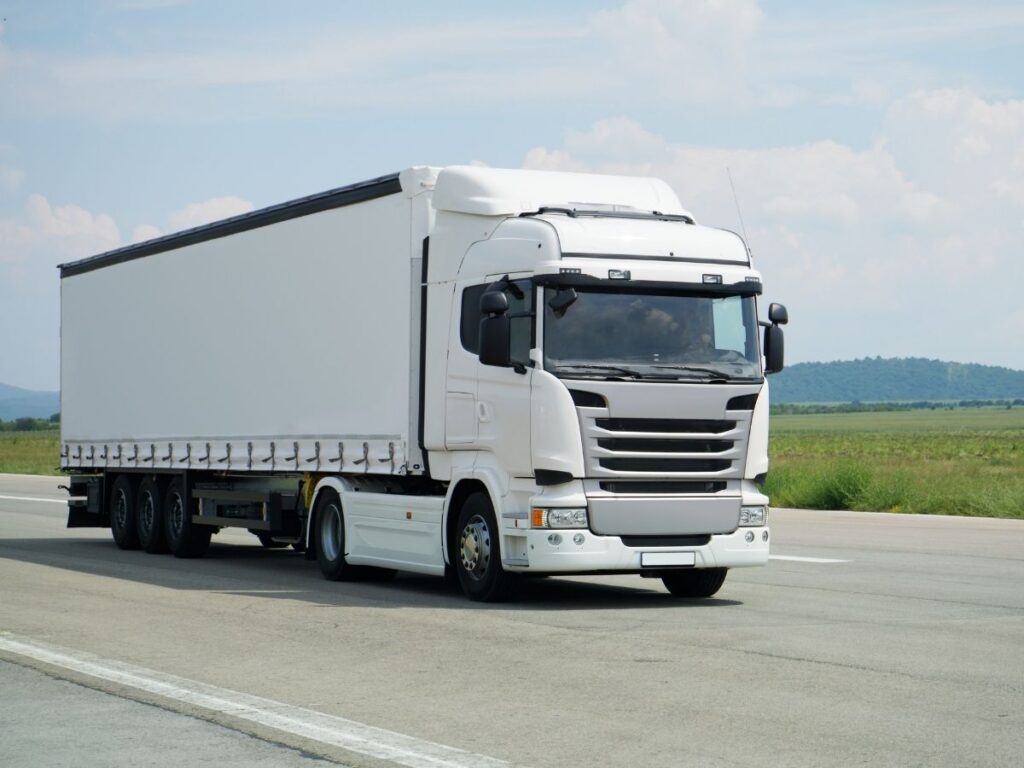
3. Cost Comparison
The first time I looked at buying a new truck, I nearly walked away.
The price was high. Way higher than what I could pay in cash. So I bought a used one instead. Cheaper upfront, and I needed something fast.
But within six months, I started adding up what that “cheap” truck really cost me—repairs, downtime, fuel, and stress. That’s when I realized price tags don’t tell the whole story.
Let’s break it down.
Upfront Costs
New Trucks
- Higher purchase price
- It can be easier to finance
- Often come with a warranty
- Less risk of surprise repairs in the first few years
At Rhinotrail, we build new trucks that serve a wide range of industries—construction, logistics, mining, agriculture, and more. For businesses looking for long-term reliability, a new truck with warranty coverage and dealer support can bring more peace of mind.
Used Trucks
- Lower upfront cost
- May need repairs or part replacements right away
- Harder to finance on good terms
- Could be out of warranty or “as-is”
Buying used might save you $20,000 to $40,000 upfront—but it’s what happens after that you need to think about.
Total Cost of Ownership
A truck isn’t just a one-time buy. It costs money to run, fix, and fuel every single month.
Here’s what to look at:
- Repairs and Maintenance: Used trucks may need more frequent service, especially if they’ve had a hard life before you.
- Insurance: New trucks usually cost more to insure. But if your used truck breaks down, your downtime costs can be worse.
- Fuel Efficiency: Newer engines are usually better on fuel. Over time, that can save thousands—especially for long hauls.
- Depreciation: New trucks lose value faster in the first 2–3 years. Used trucks lose value slower, but may come with more wear.
Sometimes, paying more upfront saves you money in the long term. Other times, a used truck can be a smart move—if it’s in good shape and fits your work.
I’ve made both choices. Some worked out. Some didn’t.
But what I learned is this: Don’t just look at what it costs today. Look at what it’ll cost you over time.
4. Reliability and Downtime
I’ve had trucks that ran like a dream for years. And I’ve had others that left me stuck on the side of the road, wondering why I ever bought them.
One breakdown can ruin a job. Missed deadlines. Lost contracts. Angry clients. I’ve been there. That’s why reliability isn’t just “nice to have”—it matters more than most people think.
Let’s look at how used and new trucks hold up under pressure.
Used Trucks
Pros
- Proven Performance: Some older models are known for holding up well. Mechanics know them. Parts are easier to swap.
- Simple Systems: Fewer electronics, sensors, or software updates to deal with.
Cons
- Breakdowns Happen More Often: Seals wear out. Hoses crack. Belts snap.
- You Don’t Know the Truck’s Past: Maybe it was well cared for. Or maybe it hauled overloads every week.
I once bought a used truck that seemed fine during the test drive. Two weeks later, the engine light came on. Then the brakes started acting up. I spent more fixing it than I saved on the price.
New Trucks
Pros
- Warranty Protection: If something breaks, the repair may be covered. That’s peace of mind.
- Fewer Surprises: You’re not dealing with old wear and tear. Parts are new. The systems are fresh.
Cons
- New Tech Can Be Tricky: Some features may still have bugs. I’ve seen trucks recalled in their first year.
- If Something Does Fail, It Might Not Be a Quick Fix. New parts can take time to order.
No truck is perfect. But the right one should show up every day and get the job done without drama.
Ask yourself: Can this truck handle my work without slowing me down? Because in this business, downtime doesn’t just cost money. It costs trust.
5. Maintenance and Repair Considerations
Maintenance is one of those things most people don’t think about—until it’s too late.
I’ve learned to ask about parts and service before I buy. Because once a truck’s in your hands, every delay, every repair, every trip to the shop becomes your problem.
Availability of Parts
Used Trucks
- Older models may have parts that are harder to find
- Some parts might be out of production or require special orders
- You may end up using aftermarket parts, which can vary in quality
I once waited three weeks for a replacement part on a 10-year-old truck. That delay cost me more than the part itself.
New Trucks
- Dealers usually have what you need or can get it fast
- Parts are still in production and under warranty
- You’re less likely to run into backorders or compatibility issues
If you need to keep moving without long waits, this makes a big difference.
Maintenance Frequency
Used Trucks
- More miles = more wear
- Hoses, belts, seals, and filters may need frequent checking
- Oil leaks and small breakdowns are more common
New Trucks
- Usually smooth for the first year or two
- Less time in the shop
- Routine service is simple and spaced out
But remember, even new trucks need care. Skipping regular maintenance will still land you in trouble.
Bottom line? A truck is more than the price you pay up front.
Think about how often you’ll need to service it. How fast you can get parts. And how every hour off the road affects your work. Because every breakdown costs more than just a repair bill.
6. Fuel Efficiency and Technology
I’ve driven trucks that burned fuel like there was no tomorrow.
And I’ve driven newer ones that went farther on half the tank.
Fuel costs add up fast. Especially if you’re hauling long distances. Sometimes it creeps up slowly—other times it hits you hard at the end of the month. Either way, it eats into your profits.
And tech? It’s not just fancy screens and buttons. It can save time, help drivers stay safe, and even help you catch small problems before they turn big.
Let’s break this down.
Fuel Costs
New Trucks
- Newer engines are built for better fuel use
- Emission systems help cut waste
- Some models can go much farther before refueling
If you’re running loads across provinces or borders, these savings can stack up over time.
Used Trucks
- Older engines tend to burn more fuel
- May not meet newer emission standards
- You could end up spending more on fuel every week
I had a used truck once that was solid mechanically—but it guzzled diesel like crazy. After six months, I realized I wasn’t really saving much. The lower price was eaten up at the pump.
Tech Features
New trucks often come with tools that make life easier:
- GPS navigation
- Auto-diagnostic alerts
- Lane assist
- Brake sensors
- Real-time tracking
Some used trucks might have a few of these—but many don’t. And if your fleet relies on tracking or digital logs, an older model might not be enough.
I used to run a small team of drivers. When I upgraded one of our trucks to a newer model with GPS and alerts, our routing got sharper. Fuel use dropped. And I could see problems before they became repairs.
If your business depends on speed, safety, and uptime, newer tech can make your life easier.
I’ve used both setups—old-school and modern. And while I respect the simple stuff, I’ve seen how the right tech can help you stay ahead.
In the end, fuel and features aren’t just small details. They’re part of how your truck works for you—or against you.
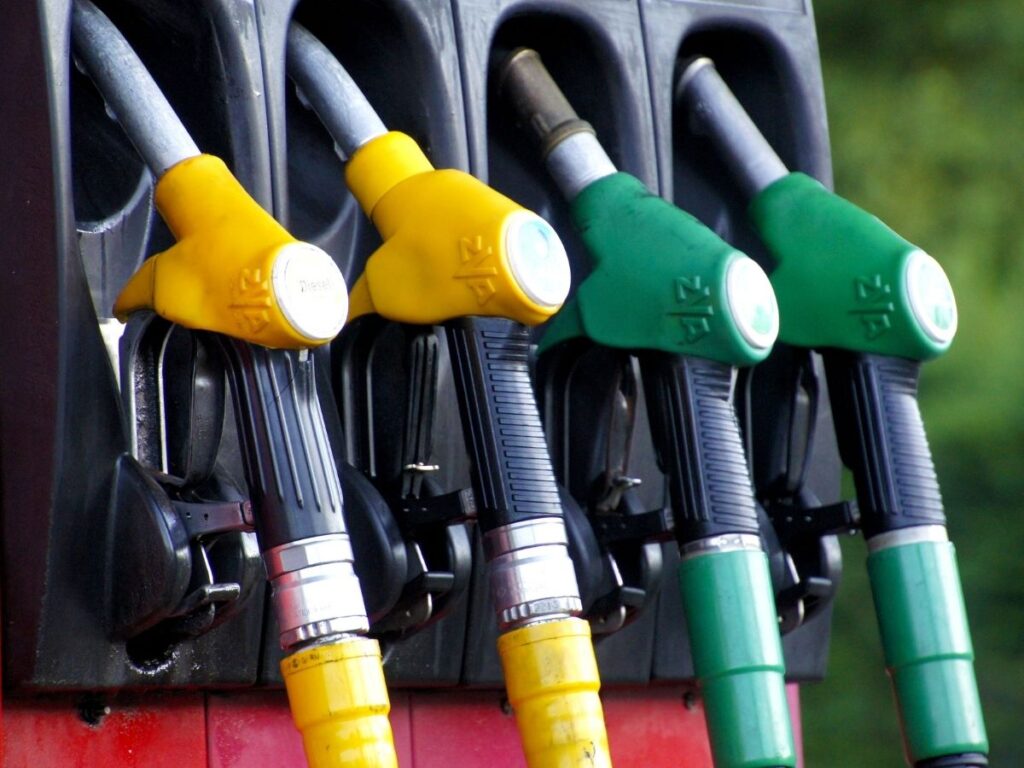
7. Financing and Leasing Options
Money talks. And when it comes to trucks, it usually speaks loudest before you even turn the key.
I’ve stood at the dealer’s desk more than once—pen in hand, calculator on my phone—trying to figure out if the monthly payment made sense. Sometimes it did. Sometimes I walk away.
Whether you’re looking at a brand-new truck or a used one, how you pay matters just as much as what you buy.
New Trucks
New trucks often come with more flexible options. Manufacturers want to move them, so they work with lenders to make deals easier.
Here’s what that usually looks like:
- More financing programs available
- Longer loan terms (stretching payments over more years)
- Lower interest rates (especially if you have good credit)
- Some tax deductions, depending on your location and tax setup
With lower maintenance needs in the first few years, your budget can stay more stable. Plus, warranties often run through most or all of the loan terms.
Still, you’re paying a higher price overall. So that low monthly payment might come with more total interest if the term is long.
Used Trucks
Used trucks can be trickier.
- Fewer financing options, especially for older models
- Higher interest rates, since lenders see more risk
- Larger down payments may be required
- Some lenders won’t finance trucks over a certain age or mileage
I’ve had lenders turn down older trucks unless I had cash up front. Once, I had to go through a local bank instead of the dealer—and it took weeks to get approval.
Used trucks can still be a smart move. But be ready for more paperwork, tighter terms, or shorter loans.
Buying or leasing, it all comes down to what you can afford—not just now, but every month after.
If the payment works but the truck doesn’t, you lose. If the truck works but the loan breaks your budget, you still lose.
Figure out your monthly comfort zone. Then match the truck and the loan to that number.
That’s what’s helped me sleep at night.
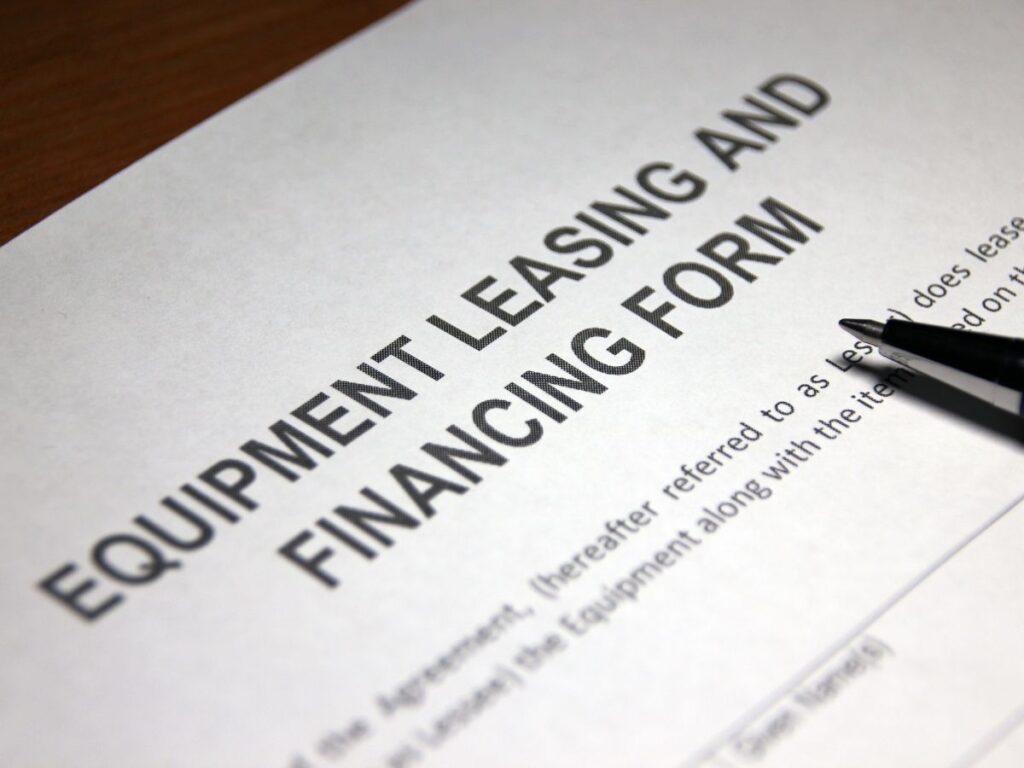
8. Warranty, Service, and Support
A few years back, I bought a used truck from a local seller. The deal was quick, the truck ran fine, and the price felt right.
But a month later, the transmission started acting up. No warranty. No support. No help. I was stuck paying the full bill—and it wasn’t cheap.
That’s when I learned: a good warranty isn’t just a bonus. It’s protection.
New Trucks
Most new trucks come with a factory warranty. You’ll usually get 3 to 5 years of coverage, depending on the brand.
That coverage can include:
- Major engine parts
- Transmission
- Emissions systems
- Roadside assistance (sometimes)
You’ll also get access to brand-certified service centers. That means trained techs, proper tools, and faster fixes.
More than anything, it gives you peace of mind. You know if something serious goes wrong early on, you’re not footing the whole bill.
Used Trucks
Here’s where things get a bit riskier.
- Some used trucks come with a limited third-party warranty
- Others are sold completely “as-is”
- No support, no coverage, no safety net
Unless you’re buying from a trusted dealer who offers a protection plan, you’re taking on more of the risk. That doesn’t mean you shouldn’t buy used—but you need to be smart about it.
If the truck is used and has no coverage, ask yourself: Do I have a trusted mechanic? Do I have a budget set aside for repairs?
Because breakdowns will happen—it’s just a matter of when.
Warranty isn’t just paperwork. It’s a safety net.
And in this business, knowing someone has your back—especially when something goes wrong—is worth more than you think.
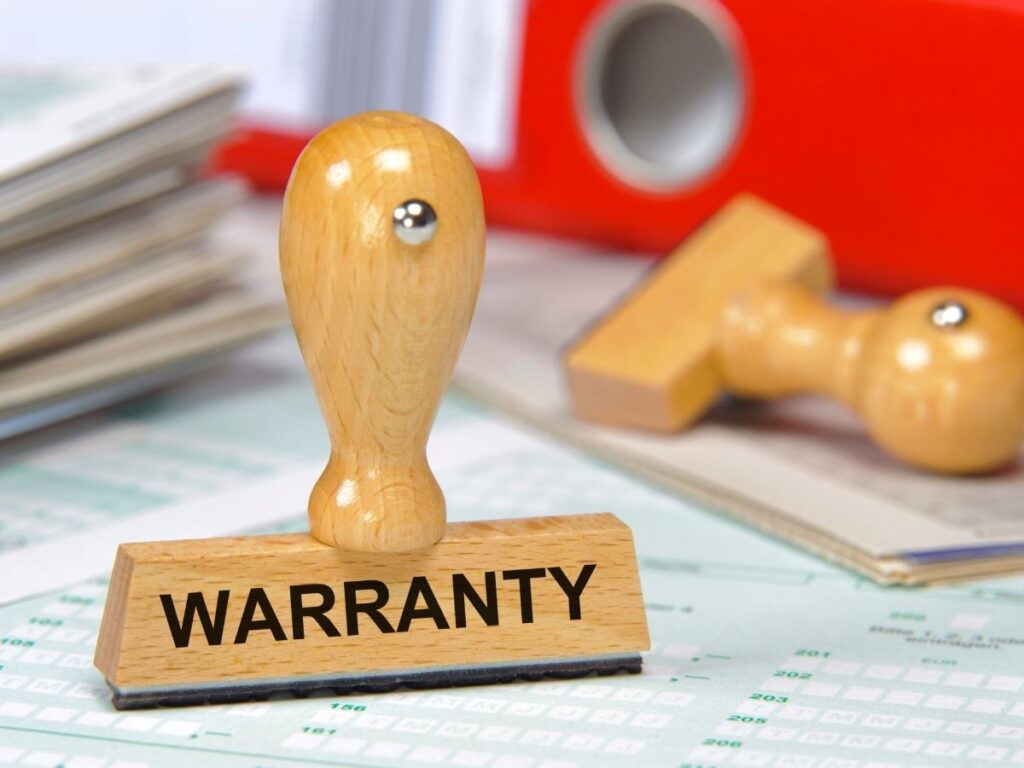
9. Compatibility with Your Trailers and Loads
I once bought a truck that didn’t match my trailer. I thought it would work. Looked good. Drove fine.
But the first time I hooked it up, I knew I had a problem. The fifth-wheel height was off. The trailer tilted. The load shifted. We had to stop, unload, and rent a different rig to finish the job.
That mistake cost me a whole day—and my profit on that job.
So before you sign anything, make sure the truck actually fits the work you do.
Check Before You Buy
Used or new, your truck has to match your trailer. Period.
Here’s what you need to check:
- Fifth-wheel height: Does it match your trailer’s setup?
- Axle configuration: Can it handle your trailer’s weight and balance?
- Braking system: Is it compatible with your trailer’s brakes and wiring?
- Payload capacity: Will it safely carry the loads you plan to haul?
- Legal weight limits: Does it meet the rules in your region or border zones?
A good deal doesn’t mean much if the truck can’t haul what you need it to.
Use Case Examples
Let’s say you’re in food transport. You need:
- A truck that works with refrigerated trailers
- Smooth handling and low vibration to protect fragile goods
- Proper wiring to power the cooling system
If you’re in mining or heavy construction, your needs are different:
- You want high torque to move equipment or bulk materials
- Older engines with fewer electronics may actually do better in rough terrain
- The focus is strength, not speed or fuel savings
Don’t assume a truck is ready just because it runs well. It needs to work with what you already own—or plan to buy.
Take a close look. Ask questions. And if you’re not sure, bring a mechanic or trailer expert to check it out.
Because the right truck isn’t just about the engine. It’s about whether it fits your setup, your loads, and your daily work.
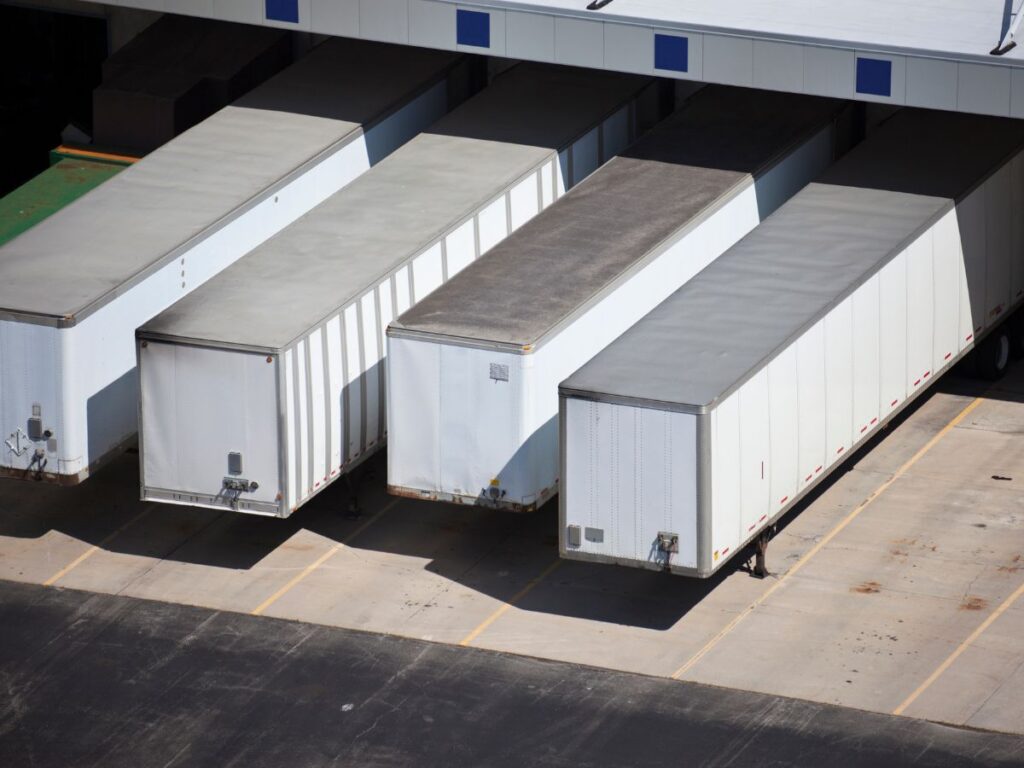
10. Tax and Depreciation Benefits
I didn’t think much about taxes the first time I bought a truck. I was focused on the price, the condition, and getting it on the road.
But when tax season rolled around, my accountant asked, “Did you track depreciation?”
I hadn’t. And I missed out on some big savings.
The truth is, whether you buy new or used, your truck can affect your taxes. Sometimes more than you think.
New Truck
Buying a new truck can give you more tax benefits, especially if you run a larger operation.
Here’s how:
- Higher depreciation write-offs, especially under rules like Section 179 (U.S.) or similar tax codes in other countries
- You may be able to write off the full purchase (or a big part of it) in the year you buy it
- Can help with year-end tax planning, especially if your business needs deductions
This can make a big difference if you’re looking to reduce taxable income after a strong year.
Used Truck
Used trucks can still offer some tax benefits—but usually less.
- Lower purchase price = smaller deductions
- Many used trucks are already partially or fully depreciated, depending on their age
- Some may not qualify for the same tax treatment as new vehicles
That doesn’t mean used is a bad choice. It just means the savings come more from the price tag than from the tax return.
I’ve learned this the hard way—buying based on price, then realizing I could’ve saved more by thinking about taxes upfront.
Sometimes a higher-cost truck ends up cheaper after tax season. But only if you know how to use it correctly.
So don’t leave this part to chance. Bring your tax person early. It might change the way you look at numbers.
11. Which One Fits Your Business?
I’ve bought new. I’ve bought used. And every time, the answer depended on one thing—what kind of work I needed the truck to do.
There’s no single right choice for everyone. What works for a mining company in the mountains might fail for a food hauler crossing borders every week.
That’s why the best decision is the one that fits your business, your routes, and your budget.
Choose New If…
You’re looking for less stress, more uptime, and modern features.
Go new if:
- You want minimal maintenance in the first few years
- You haul long-distance or carry time-sensitive or fragile loads
- You’re okay with longer financing in exchange for peace of mind
- You need warranty coverage and strong dealer support
- You run a business where downtime costs you clients
At Rhinotrail, we build new trucks for all kinds of heavy work—from cross-border logistics to off-road mining and fuel delivery. If reliability is key to your operation, and you need a truck that works as hard as you do, a new unit can be a smart move.
I’ve seen new trucks pay off fast for logistics teams that can’t afford to miss a day on the road. And when you’ve got the right support behind you, the risk goes down—and the returns go up.
Choose Used If…
You’re keeping costs low and know how to handle small repairs.
Go used if:
- You run short hauls or have flexible schedules
- You want to avoid the quick depreciation new trucks bring
- You have a trusted mechanic or in-house service team
- You can afford to make repairs as needed
- You’re starting out and watching every dollar
I’ve worked with small fleets that ran older trucks for years—with the right upkeep, they kept moving without big monthly payments.
The truck you choose doesn’t just move your load. It affects your cash flow, your schedule, and your ability to deliver.
Take a good look at your work. Your roads. Your budget. Your goals.
Then choose the truck that helps you move forward—not just today, but six months from now.
That’s how I do it. And that’s how I’ve avoided more regret than I care to count.
Conclusion
I didn’t write this just to share facts. I wrote it because I’ve lived this decision.
I’ve made the wrong call before. And I’ve made the right one too.
Now you know what to look at—cost, reliability, repairs, tech, and more.
New or used, it’s all about what fits your work.
So what’s next for you?
Is this the year you finally upgraded?
Contact us today and let’s talk about your next truck. The one that moves your business forward.


